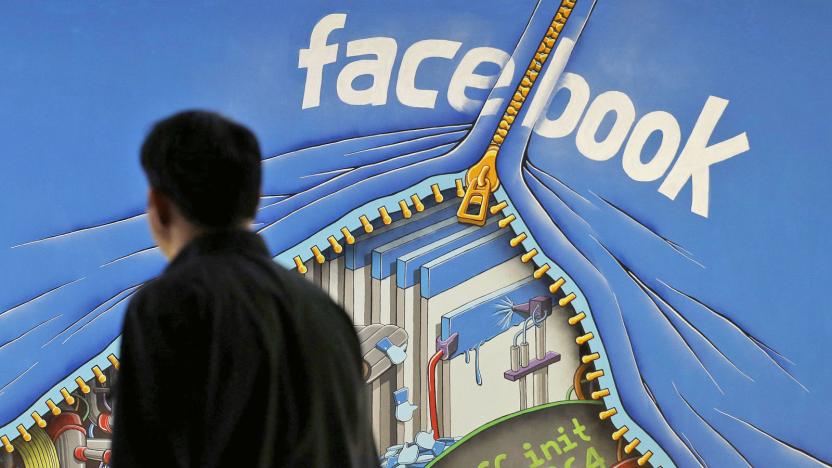InternetSpeeds
Latest

UK watchdog tells ISPs to advertise ‘real’ broadband speeds
Broadband packages are notoriously difficult to untangle. Prices are obscured with introductory discounts and the speeds you get are nothing like what was advertised. It sucks, and the UK's Advertising Standards Authority (ASA) knows it. So today, the watchdog has announced new rules for broadband advertising. From now on, the figure you see must be based on the download speeds available to 50 percent of the company's customers at peak hours. In addition, a qualifier like "average" must be visible. It's a marked improvement over the previous guidelines, which said speeds must be available to at least 10 percent of customers.

Facebook's News Feed will adapt to your connection speed
Facebook is really trying to show News Feed stories you might want to see, even if you're on a slow internet connection. Last year, it tweaked its algorithms to serve up stories by caching them on your device if internet speeds slow down. While this guarantees you have some kind of content, it means you might get old or irrelevant articles. So, Facebook devised a new ranking system that weighs "both new stories from the server and unseen stories from the persistent cache." The result should be posts you're more interested in reading, even if you're stuck on a train or in a refugee camp.

Global internet speeds are on the rise again
Yes, South Korea still has the fastest internet in the world. But, according to content delivery network Akamai, average global speeds are up overall from late last year, jumping to 6.3 Mbps. More than that, we're seeing increases in increases in IPv6 adoption with Belgium leading the way and the older IPv4 slowly dropping off on a global scale. And if you were wondering what mobile speeds are looking like lately, guess no more: average connections were at 27.9 Mbps in the UK and dipped to 2.2 Mbps in Algeria.

Google is testing internet speeds straight from search
For years Ookla has dominated internet speed test traffic, but Netflix recently unveiled a simpler option. Now, Google may be muscling into the game with its own test that works straight from search. Internet marketer Dr. Pete Meyers spotted an "Internet speed test" appearing directly in search results prompted by the query "check internet speed." If you click the "run speed test" box (below), Google's Measurement Lab checks your connection speed and gives more details that can help system administrators.

Your internet is probably slower than advertised
When it comes to internet speeds, "you get what you pay for" is pretty far from the truth a majority of the time. The Wall Street Journal used Ookla's speed-testing data to survey some 800 US cities and 27 ISPs in terms of advertised transfer rates and what customers are actually getting, and the results are pretty surprising. A vast majority of providers give their customers the short shrift on speed (Verizon Internet Services and AT&T Uverse are among the most prominent offenders), while a handful of ISPs including Charter, Earthlink and Midcontinent Communications actually exceed promised speeds by eight percent or more. A probable reason for the latter is because those listed are smaller providers, with likely lighter user-loads than, say, Comcast or CenturyLink.

FCC measures US wireline advertised broadband speeds, fiber dominates cable and DSL
Ever wonder if the speeds your ISP advertises are actually what you're getting while reloading Engadget all day? The FCC did, and decided to team up with 13 major broadband providers in the US to test how they performed from February to June of this year. Notably, during peak hours the average continuous download speeds of fiber connections were 14 percent faster than advertised, while cable and DSL were slower than claimed by 8 and 18 percent, respectively. Upload speeds also varied, with DSL again dipping the lowest at 95-percent of what's advertised -- might be time to ask your phone-based ISP for a partial refund, no? In addition to sustained speeds, the FCC analyzed consumer connections' latency and the effect of ISP speed boost tech on activities like VoIP, gaming, and video streaming. In concluding its research, the Commission noted that it should be easy to get tools in users' hands for keeping better tabs on ISP-provided services, without needing to contact customer frustrations relations. The study is chock full of even more graphs and stats, which you'll find by hitting that source link below. Now, if only we could get those speeds on par with our friends across the Atlantic.



